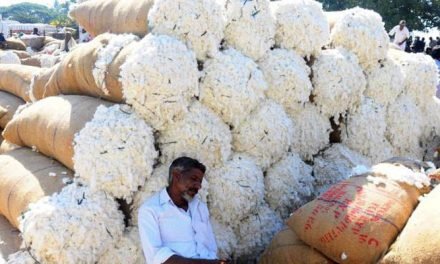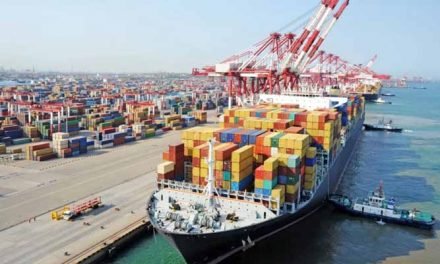 Indian apparel exporters are expected to register a 9-11 per cent revenue expansion in FY25 aided primarily by gradual liquidation of retail inventory in key end markets and a shift in global sourcing to India, ratings agency ICRA recently.
Indian apparel exporters are expected to register a 9-11 per cent revenue expansion in FY25 aided primarily by gradual liquidation of retail inventory in key end markets and a shift in global sourcing to India, ratings agency ICRA recently.
The long-term prospects for Indian apparel exports are favourable, aided by enhanced product acceptance in end markets, evolving consumer trends and a boost from the government in the form of the production- linked incentive (PLI) scheme, export incentives, the proposed free trade agreement with the UK and the EU, among others, ICRA said in a statement.
The expected growth this fiscal follows a tepid performance in FY24 when exports were affected because of high retail inventory, sluggish demand from the key end markets, supply chain issues, including the Red Sea crisis and heightened competition from neighbouring countries, it added.
With the revival in demand, ICRA said it expects the capex spending to increase in FY2025 and FY2026 and may stay in the range of 5-8 per cent of the turnover.
“After a marginal decline (down 2 per cent) in FY24, Indian apparel exporters are estimated to report a 9-11 per cent revenue growth in FY25, benefitting from de-risking strategy adopted by various customers and replenishment of retail inventory in key end markets, especially the US and the EU regions,” ICRA Senior Vice President & Co-Group Head Corporate Ratings Srikumar Krishnamurthy said.
Nevertheless, he said challenges around demand uncertainty persist in a few key markets amid a subdued macroeconomic environment and geopolitical issues.
“Despite the revenue growth, associated operating leverage benefits and softer raw material prices, the industry’s operating margins are expected to contract by 30-50 bps on a YoY basis in FY25 with increasing labour costs, freight costs and rise in other operating expenses,” Krishnamurthy added. ICRA said the recent geo-political tensions in Bangladesh could result in capacity additions outside the country, including India.
Yet, availability of labour at competitive costs and preferential duty access, given its least developed country status for another two years on exports to the US and the EU help Bangladesh to remain competitive against most other developing countries, it added.
“Apart from the benefits to be derived from the fresh capacity additions under the PLI scheme, PM Mega Integrated Textile Region and Apparel scheme is expected to strengthen India’s presence in the global apparel trade by providing scale benefits and strengthening the country’s presence in the man-made fibre value chain,” Srikumar said.
ICRA anticipates the culmination of these schemes to enable Indian apparel exporters to increase their share of the pie in the global apparel trade, he added.





















